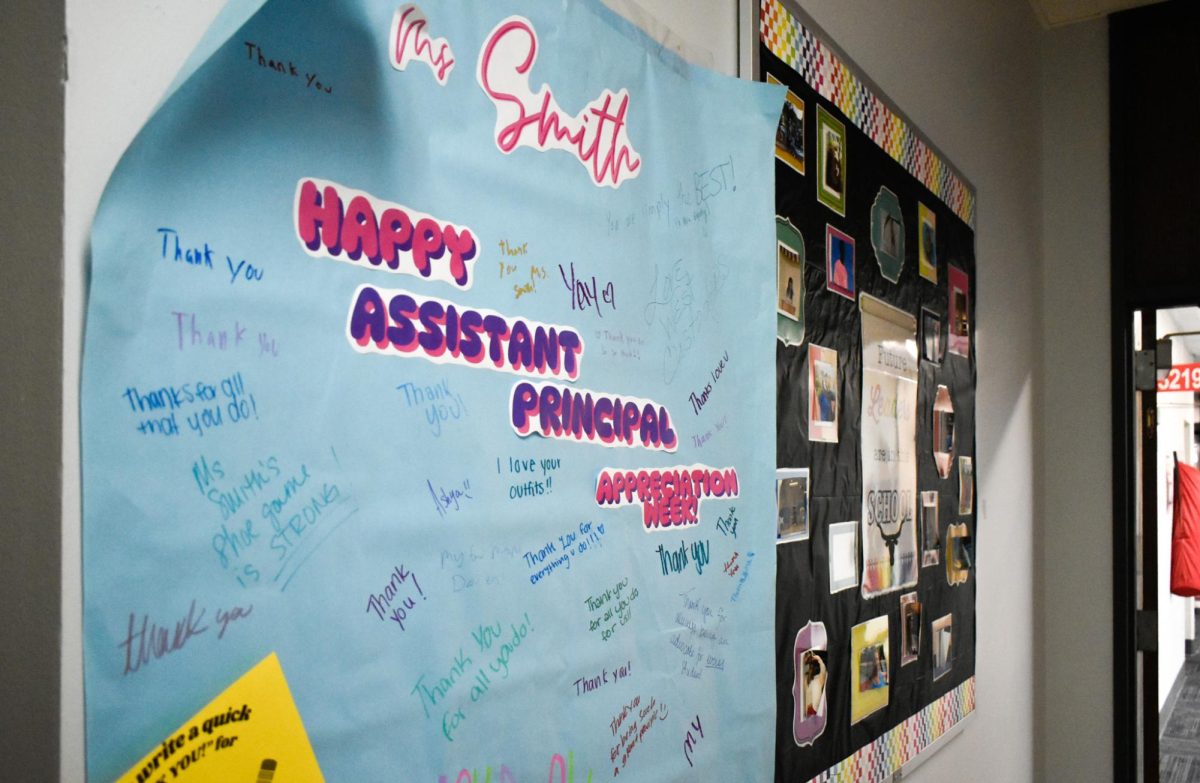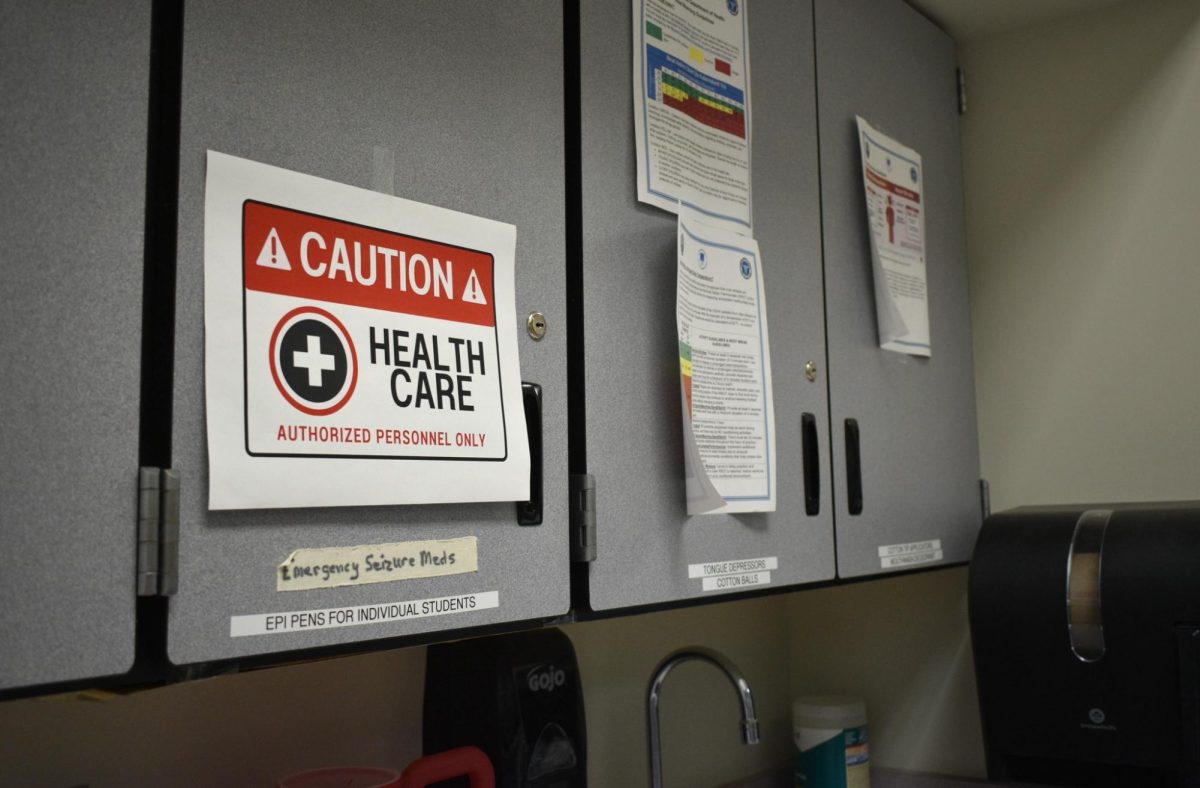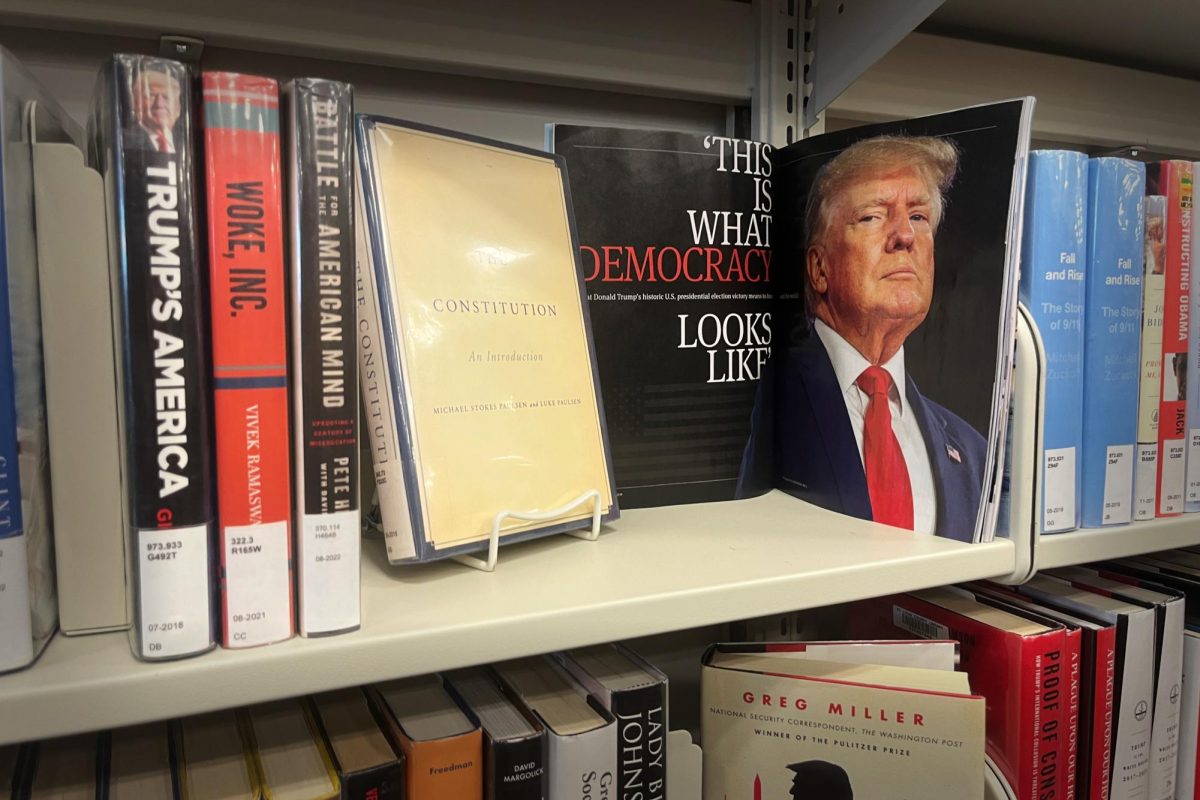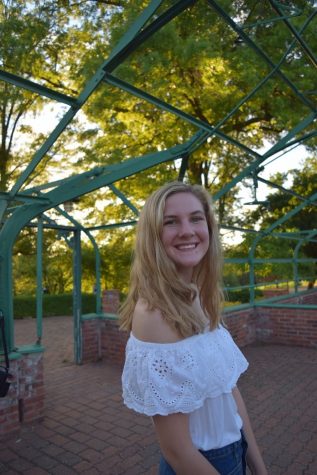In the days following Special Olympics, Instagram floods with photos of ‚ÄúBuddies‚Äù smiling next to their athletes. Buddies are student volunteers who help and support their partnered Special Olympics athlete throughout the event. However, the basketball tournament, the sole purpose of the event, is often overshadowed by photo opps and the mentality of ‚Äúpraise-worthy actions.‚Äù¬Ý
When we aim to provide service on a day spent with athletes, it is easy to lose sight of what exactly the ‚Äúpurpose‚Äù is. It should be clearly distinguished that helping athletes play and enjoy basketball is where the “service” part comes into play. Spending time with people who may not look or be exactly like us should be a more common practice; this action alone is not service and should not be recognized as such.
Teacher Assistant Susan Anderson has been in charge of organizing Special Olympics alongside several other staff members for the past eight years.
“I think a lot of us live in a bubble. I know a lot of us are unaware of people having different ability levels or don’t consider that as something like a challenge people deal with. I think that usually people come out of this day with a bigger picture of all the types of different people around us every day. Most student volunteers come out of it saying they learned more from [their athlete] than their [athlete] learned from them,” Anderson said.
Special Olympics provides student volunteers with an opportunity to communicate and interact with people of different abilities while participating in a variety of fun activities. Despite the fact that these athletes, ranging from first to 12th grade, have different levels of basketball experience and physical or mental abilities, they all become generalized into one group under the single label of “special,” or disabled.
By dividing ourselves into groups based on ability, we subconsciously foster an “us versus them” mentality. The range of differing abilities present in events like Special Olympics are just as present in everyday situations; we need to utilize opportunities like that of being a Buddy to learn how to communicate with people in ways we are not used to. These skills should transfer to our lives outside of Day of Service.
“Sometimes [when I watch students participate in the event] I’m like, ‘I didn’t know he had it in him,’ or I see some of the athlete’s eyes lit up and they’re so elated because they’re just having the best day. The athletes really look up to their buddies,” Anderson said.
Special Olympics has been a long-standing tradition for more than 30 years. However, participation was previously limited to an applicant-only process. Now, students choose between volunteering for Special Olympics or Day of Service.
One result of this change is that when students are given the choice between volunteering with Day of Service or Special Olympics, they may choose to volunteer for Special Olympics simply for the convenience of staying on campus. However, it is important that students participating are doing so for the experience, not the photo opp, or as a way to avoid off campus community service.¬Ý
“The day of the event, I can tell who wants to be there and who is just going through the motions,” Anderson said. “I had a group of seven freshman boys come into my room this year and demand they could sign up for Special Olympics. Nobody else has been that determined. That, to me, really showed me that there are people in it for the right reasons.”
Special Olympics is a unique event which we all look forward to. But, even while we are enjoying ourselves, we need to be mindful of the way we look at the day to ensure we are learning, not just posing.¬Ý¬Ý¬Ý
At the end of the event, many student volunteers take photos with their Buddy to remember the day. There is no inherent issue with taking photos at an event, but the culture of posting on social media with our buddies‚Äì‚Äìtypically people you‚Äôve just met‚Äì‚Äìcan be interpreted as asking to be praised for the time you‚Äôve spent, rather than the things you’ve done. This type of interaction should be normalized and done outside of service opportunities and without need for recognition or validation from others on social media.¬Ý
Furthermore, per the rules of Special Olympics, Buddies are not even permitted to post photos with their athletes on personal social media accounts. Some athletes, with a special marking on their name tags, are not allowed to be photographed at all. It is important that as a community we respect everyone‚Äôs needs.¬Ý
In order to create a more inclusive environment, we must first change our mindset towards Special Olympics. The team-focused sport of basketball fosters cooperation and connection between students of different abilities, creating a space for this type of interaction to be normalized. The overarching takeaway of Special Olympics should be how we can better bridge the gaps between people of different abilities in our everyday lives.¬Ý


![Junior and cheerleader Tori Fischer hugs a Special Olympics athlete during the opening ceremony last year. Throughout the basketball tournament, cheerleaders encourage athletes from the side of the court. “Cheering for Special Olympics is honestly one of my favorite things I get to do during the school year,” Fischer said. “At normal games, we have to stay in formations and do planned cheers and people are so used to us that [it] doesn't get people excited. But at Special Olympics a lot of the athletes get excited when they hear us cheering for them and we can cheer them on in a totally relaxed and more personal way.”](https://pwestpathfinder.com/wp-content/uploads/2020/03/DSC_0024-900x600.jpg)
![Dressed up as the varsity girls’ tennis coach Katelyn Arenos, senior Kate Johnson and junior Mireya David hand out candy at West High’s annual trunk or treat event. This year, the trunk or treat was moved inside as a result of adverse weather. “As a senior, I care less about Halloween now. Teachers will bring their kids and families [to West’s Trunk or Treat], but there were fewer [this year] because they just thought it was canceled [due to the] rain. [With] Halloween, I think you care less the older you get,” Johnson said.](https://pwestpathfinder.com/wp-content/uploads/2025/10/DSC00892-1-1200x800.jpg)
![Leaning on the podium, superintendent Melissa Schneider speaks to Parkway journalism students during a press conference. Schneider joined Parkway in July after working in the Thompson School District in Colorado. “My plan [to bond with students] is to get things on my calendar as much as possible. For example, being in [classes] is very special to me. I am trying to be opportunistic [meeting] kids [and] being in [the school] buildings. I have all the sports schedules and the fine arts schedules on my calendar, so that when I'm available, I can get to them,” Schneider said.](https://pwestpathfinder.com/wp-content/uploads/2025/09/IMG_5425-1200x943.jpeg)


![Red, white and blue, the American flag holds the values of our democracy. The fight that we once endured has returned, as student journalists and senior correspondents across the country are losing their voices due to government control. “[Are] the White House and [the] government limiting free speech [and] freedom of the press? Yes [they are],” chief communications officer of the Parkway School District and former journalist Elisa Tomich said.](https://pwestpathfinder.com/wp-content/uploads/2025/03/Untitled-design-14.jpg)
![A board in the Parkway West counseling department displays pennants of selective universities. With a wide range of students interested in attending, it’s important that these schools have clear priorities when deciding who to admit. “[Washington University] had the major that I wanted, psychology, philosophy, neuroscience. That's a holistic study of the brain, and [WashU is] the only college in the world that offers that. That's the main reason I wanted to go; I got into that program,” senior Dima Layth said.](https://pwestpathfinder.com/wp-content/uploads/2025/02/Flag-1.png)

![Within the U.S., the busiest shopping period of the year is Cyber Week, the time from Thanksgiving through Black Friday and Cyber Monday. This year, shoppers spent $13.3 billion on Cyber Monday, which is a 7.3% year-over-year increase from 2023. “When I was younger, I would always be out with my mom getting Christmas gifts or just shopping in general. Now, as she has gotten older, I've noticed [that almost] every day, I'll open the front door and there's three packages that my mom has ordered. Part of that is she just doesn't always have the time to go to a store for 30 minutes to an hour, but the other part is when she gets bored, she has easy access to [shopping],” junior Grace Garetson said.](https://pwestpathfinder.com/wp-content/uploads/2024/12/DSC_0249.JPG-1200x801.jpg)

![Senior Sally Peters stands in the history hallway, contemplating her choices in the 2024 United States and Missouri elections on Nov. 5. As a member of Diplomacy Club, Peters has discussed key candidates and issues in contemporary American politics. “[As students], we're starting to become adults. We're realizing how much the policies that are enforced and the laws that make it through the House and Senate are starting to affect us. [Opportunities such as] AP [U.S.Government] and Diplomacy Club [make elections feel] a lot more real,” Diplomacy Club vice president and senior Nidhisha Pejathaya said.](https://pwestpathfinder.com/wp-content/uploads/2024/10/Flag-1-1.png)

Amanda Clark • May 17, 2020 at 2:56 pm
In addition to this, I think the structure needs to have more options. It’s wonderful to see people thriving in this environment, but we have to remember that not everyone does. That sometimes it’s the athletes who are going through the motions because this isn’t right for them. Just like the rest of us, not everyone likes sports, not everyone wants a lot of attention, and, more importantly, a lot of people have strong sensory needs that makes the loud, crowded environment overwhelming to them. We need to have the option of a sensory room or other alternate activities to make sure we’re catering to everyone’s needs.
Zoe DeYoung • Apr 13, 2020 at 3:02 pm
I love this. Special Olympics is a time to serve and celebrate our athletes, and sometimes social media can negate the purpose of the event entirely.